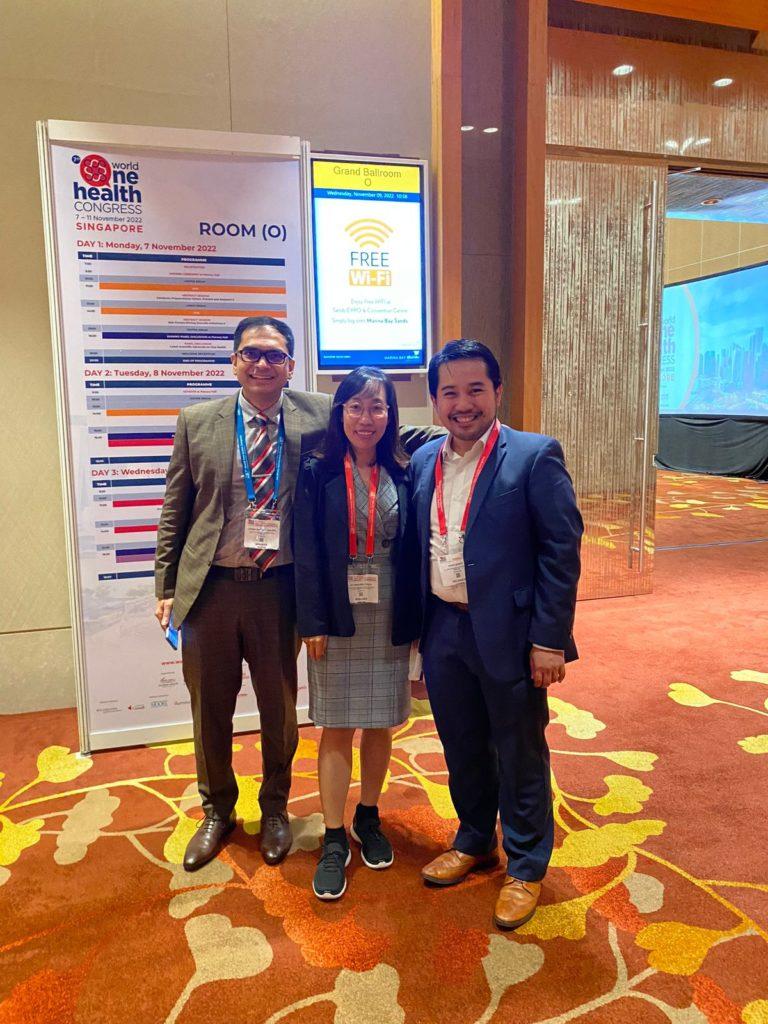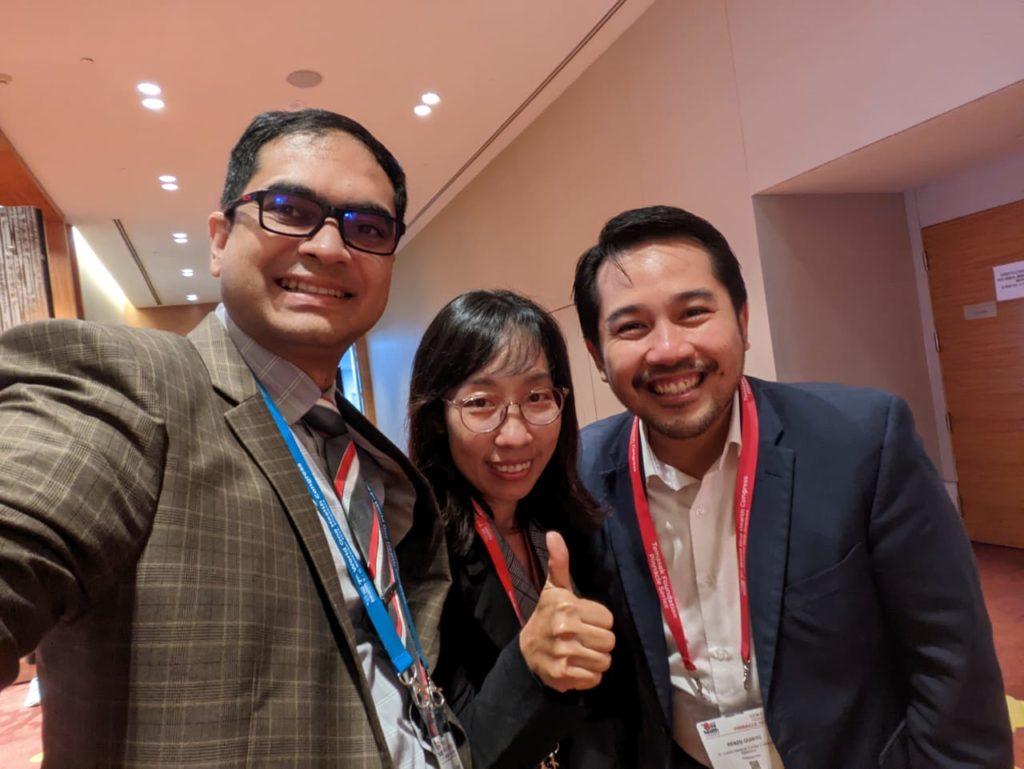
The interdependence of people, animals and the environment is the foundation of the One Health movement. We, three Emerging Voices alumni from three different countries, were naturally on the lookout for the spirit of oneness at the 7th World One Health Congress in Singapore, from 7 to 11 November 2022. Situated at the Sands Expo and Convention Center along Marina bay, the Congress brought together about 2500 experts (virtual and face-to-face) from different parts of the world. The organizer of the event, SingHealth Duke-NUS Global Health Institute, succeeded in amassing experts from diverse disciplines, but could it also unite them?
Below are the main discussions, as we observed, under each of the five thematic tracks of the Congress.
Track 1: One Health Science (OHS)
We realized that disease surveillance is essential to prevent an outbreak in a locality and, thereafter, globally. Harmonization of data surveillance, and enhancing epidemic preparedness through community participation in disease reporting and prevention can be optimized to create an efficient system for One Health surveillance. As One Health requires multi-sectoral participation beyond medical and biological science, bringing social science into One Health is essential.
In our opinion, based on what we heard in this Congress track, more support is needed in resource-limited countries for disease surveillance to prevent the next disease outbreak. Co-funding and co-sharing benefits across sectors will benefit the One Health approach more.
Track 2: Antimicrobial Resistance (AMR)
In our observation of the sessions in this track, combating AMR needs to shift away from an anthropocentric approach to tap into other non-human-centric health institutions focusing on animals, the environment and climate in enacting all-encompassing health policies to solve challenges. Big data, machine learning, and predictive models present new opportunities in medicine in prescribing antimicrobials appropriately to curb the rise of drug-resistant microbes.
In our view, compliance, stewardship, communication, and knowledge sharing are essential to address AMR globally.
Track 3: Policy, Environment and Biosecurity (PEB)
We found from the discussions on PEB that voluntary licensing agreements and technology transfer would increase access to vaccines and essential equipment for low- and middle-income countries (LMICs) in future pandemics. Compensation policies and incentives for animal farmers should be clearly outlined during an outbreak. This will effectively encourage the participation of farmers to join the reporting and responses to the outbreak.
We felt the responsibilities and capacities of financing, building sustainable collaboration models in prevention and funding, and integrating efforts based on equity are crucial for the One Health agenda.
Track 4: Pandemic Preparedness and Health Systems Resilience (PPHSR)
We understood from this track that pandemic preparedness requires a multi-faceted approach. A better understanding of actions is needed at different stages of the pandemic. More rapid and equitable manufacture, delivery, and uptake of interventions, along with an improved understanding of behavioral responses, is essential.
Our opinion is that a paradigm shift is necessary to balance the current emphasis on response with the under-invested area of prevention and risk reduction to support overall global preparedness and resilience.
Track 5: Impact on and Innovations in Clinical Practice (IICP)
We heard about many technologies and innovations in clinical practice for One Health, among others vaccines for animals, wastewater surveillance, banning animal slaughtering in the marketplace, air sampling in bat caves, app-based detection of bat movements, a pandemic treaty, technology transfer to prevent vaccine apartheid, use of a Global One Health Index as a framework for policymaking, and improving genomic surveillance capacity of countries.
However, we gathered from the debates and discussions in Congress that technology and innovation alone cannot change healthcare. Innovations require medical professionals to validate them. There is also value in greater involvement of social science disciplines in public health policy to support innovation.
Conclusions and the ways forward
The Congress provided an opportunity to learn and share the One Health framework and its application by drawing lessons learned from COVID-19 and beyond. However, we sensed from a few sessions that One Health governance is still fragmented and requires improved coordination, collaboration, communication, and innovations across the multiple stakeholders involved. Global health practitioners must collaborate to support One Health science and implementation. There still needs to be a greater understanding of the One Health framework among discipline stakeholders and different levels of society. It is important to communicate better between diverse discipline stakeholders, including scientists, politicians, and communities.
A clear message from most of the plenary sessions was that investment in prevention is way cheaper than a response to the next outbreak. Global health practitioners from the three main sectors—human, animal, and environmental—need to work together in investing in prevention. Empowering communities through a bottom-up approach to tackling the One Health challenges was another principle theme of the plenaries.
Prof. Linfa Wang, Co-chair of the Congress steering committee, in his concluding speech of the Congress, aptly summarized three takeaways or calls to action: a. Invest in prevention, b. Work across sectors, and c. Greater One Health advocacy – and better communication between scientists, policy-makers, and communities.
Oneness in One Health, as we felt, is within reach, but we are not there yet.
